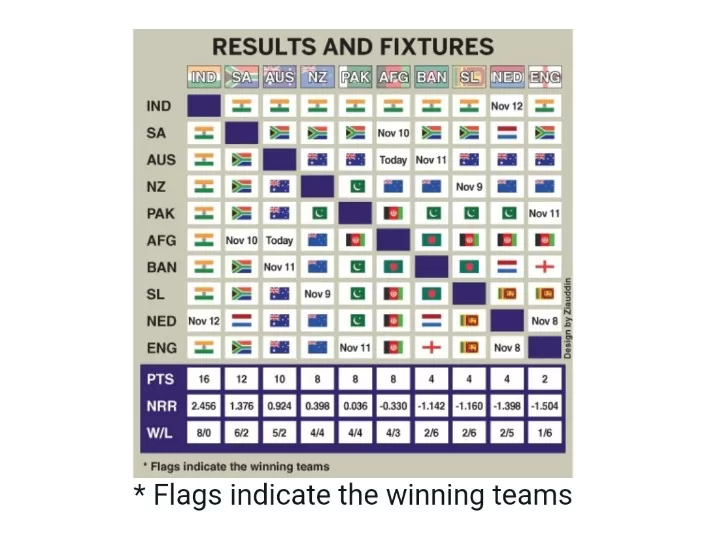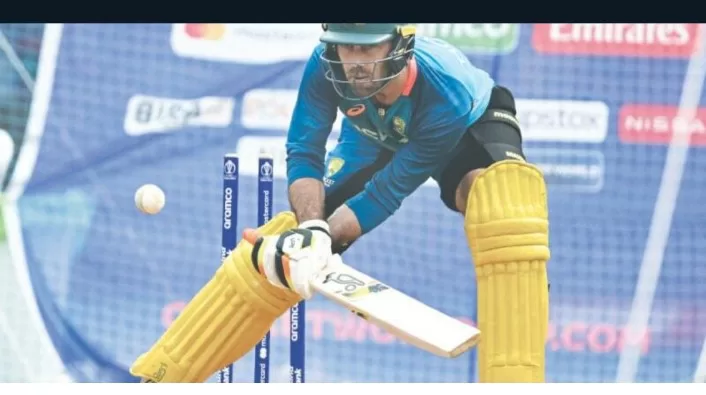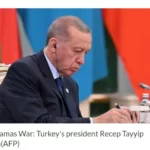MUMBAI: Australian cricket luminary Steve Smith, when confronted with inquiries about the decision to engage in a pivotal World Cup clash against Afghanistan, candidly asserted that such determinations lay “beyond my purview,” as Cricket Australia grappled with allegations of “double standards.”
Earlier this year, Cricket Australia revoked a scheduled three-match One-day International series against Afghanistan, citing concerns that the Taliban, who assumed control in 2021, had imposed stringent constraints on the educational and occupational opportunities available to Afghan women and girls, including those involved in cricket.
In the lead-up to Tuesday’s high-stakes contest in Mumbai, Afghanistan’s fast bowler, Naveen-ul-Haq, took to social media, insinuating that CA’s stance appeared inconsistent, given their abandonment of the bilateral series while proceeding with a World Cup match where there was something substantial at stake.
“Having declined to partake in the bilateral series, it is now intriguing to witness Cricket Australia’s position in the World Cup, considering the facets of ‘standards’ and ‘human rights’ or the pursuit of mere ‘2 points’,” Naveen opined on Instagram.
Conversely, former Australian captain Steve Smith, addressing a pre-match press conference at Mumbai’s Wankhede Stadium on Monday, remarked, “We already faced Afghanistan in the T20 World Cup on our home turf not too long ago, and we are set to compete tomorrow [Tuesday]. The matter, in my view, transcends my sphere of influence.”
Cricket Australia swiftly responded to Naveen’s commentary, with a spokesperson conveying to News Corp Australia, “CA’s choice to forego the three-match ODI series against Afghanistan in March was rooted in the Taliban’s announcement of heightened restrictions on women’s rights, encompassing education, employment, as well as access to recreational facilities and gymnasiums. A distinction is discernible between engaging in bilateral series with Afghanistan, which falls under CA’s jurisdiction, versus participating in a World Cup tournament, subject to the regulations of the International Cricket Council.”
Tuesday’s World Cup confrontation holds immense significance for both teams, with Afghanistan, an emerging cricketing nation, still harboring aspirations for a semi-final berth following their commendable four victories in seven pool matches during the competition.
Afghanistan’s skipper, Hashmatullah Shahidi, demonstrated a focus on the impending fixture’s importance, asserting, “We are currently preparing for a crucial World Cup match tomorrow. Concentrating on such matters [CA’s stance on Afghanistan] may not serve our best interests.”
Boycotts and walkovers have marked previous editions of the World Cup, with both Australia and the West Indies forfeiting matches in Sri Lanka during the 1996 tournament due to security concerns. Additionally, England declined to contest a match against Zimbabwe in the 2003 World Cup, citing safety apprehensions, which contributed to their premature exit from the competition.
Australia, a five-time World Cup champion, must secure victory in one of their remaining two group games, against Afghanistan and Bangladesh, to secure a berth in the knockout stage. Smith expressed optimism about the team’s current form, stating, “Peaking at the right time toward the latter stages of the tournament is a desirable outcome. We’ve played some excellent cricket recently, and hopefully, we can deliver a strong performance tomorrow, secure our place, and present ourselves with a chance.”
Despite Smith’s challenges at the World Cup, where he has amassed 205 runs in seven innings at an average of less than 30, his proficiency against slow bowling remains a valuable asset, particularly in the face of Afghanistan’s formidable spin attack, featuring Rashid Khan, Mujeeb ur Rahman, and Mohammad Nabi, who have excelled in the tournament.
Afghanistan, a team with just one victory in previous World Cup appearances against non-Test side Scotland, has emerged as a compelling surprise in India, triumphing over reigning champions England, 1992 title-winners Pakistan, and 1996 victors Sri Lanka.
“They have seized pivotal moments in matches against formidable opponents, and their spinners pose a substantial threat. They are endowed with quality bowlers, and their top-order batsmen are known for their assertive approach, capable of seizing the game’s initiative,” remarked Smith. “They have evolved into a formidable side in the past five to six years, presenting a formidable challenge. Triumphing over them will necessitate a superior performance.”







